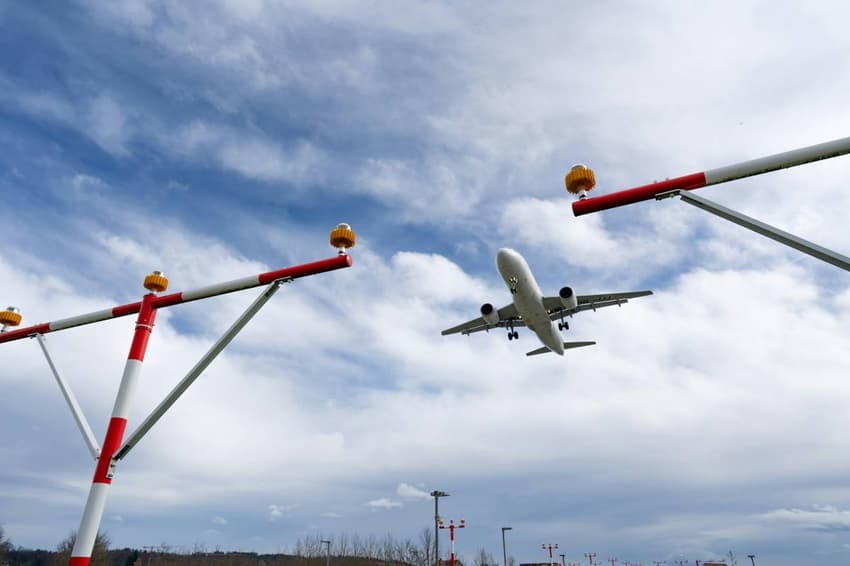What we know so far about Norway's plans for an exit tax

The Norwegian government wants tougher tax regulations for people leaving the country. Under the proposed changes, emigrants would face a new exit tax.
If the current Norwegian government gets its way, residents planning to leave the country will soon face tighter tax rules.
The government has put forward proposals for a more rigorous exit tax.
READ MORE: Does Norway really have some of the highest taxes in the world?
The new system will see the state close loopholes that exist within the current exit tax rules, and emigrants will be charged on the gains they have made on shares while residing in Norway when moving assets overseas, public broadcaster NRK reports.
According to the proposal, anyone leaving the country starting from March 20th, 2024 would be required to pay taxes on these gains within a 12-year period. This means the tax could potentially apply to some retroactively.
"It's only right for people to contribute taxes on assets accumulated in Norway," Norway's Finance Minister Trygve Slagsvold Vedum said
The government's move to close tax loopholes follows an exodus of wealth from the country. A number of high profile business people, like fisheries magnate Kjell Inge Røkke, moved to countries like Switzerland in 2022 due to wealth tax changes.
READ MORE: Why Norway has continued to see an exodus of wealthy residents
According to the new proposal, the tax settlement would occur when the person decides to move out of Norway. This means that upon departure, they would need to address their tax obligations related to gains of over 500,000 kroner on shares accrued during their time in Norway.
Under the proposed regulations, the tax rate would align with the dividend tax, which currently stands at 37.8 percent.
Expatriates will be presented with several options for fulfilling this tax obligation. They will be able to choose to pay the tax immediately, opt for interest-free instalments spread over a 12-year period, or defer payment until after the 12-year deadline, but with accrued interest.

The highest earners in Norway are subject to a steep bracket tax, which has motivated some wealthy earners to leave. Pictured are two people filling out paperwork. Photo by Gabrielle Henderson on Unsplash
Should they choose to return to Norway within the 12-year timeframe, the tax would no longer apply to shares they still hold. Furthermore, any subsequent decrease in gains after leaving the country would not impact the tax liability.
"When you relocate, it's only fair that you contribute taxes on what you've earned or gained in Norway. However, this process must be reasonable, hence the 12-year rule. Some people may wish to reside abroad temporarily and eventually return home," Vedum said.
The tax would extend to include gains from share savings accounts and fund accounts.
If shares with subsequent gains are transferred to someone residing abroad, such as a relative, the tax would apply if the gain exceeds 100,000 kroner. Previously, this threshold stood at 500,000 kroner.
Current emigration tax – and it's loophole
Since November 2022, those leaving the country have been obligated to pay an emigration tax. However, in practice, it has been possible to indefinitely postpone this payment.
This loophole exists because payment is only required once gains are realised, typically through dividends or sales.
READ MORE: Five ways to legally lower your tax bill in Norway
Many Norwegians with significant investments in shares or assets tied up in a company rarely decide to withdraw the entire gain immediately.
Consequently, they've been able to delay settling their tax liabilities.
The expected timeline
The proposal is set to undergo a consultation period, beginning on March 20th and lasting until May 21st.
During this time, stakeholders and the public will have the opportunity to provide feedback and insights on the proposed regulations.
Following the consultation period, the proposal will be reviewed and possibly adopted by the Storting, where the government will need to rely on securing majority support for its implementation.
The government's budget partner in the parliament, the Socialist Left Party (SV), has already voiced initial support for the idea but is expected to provide a more detailed reaction to the new plan in the coming weeks.
Similar tax models have been implemented in countries like Germany. Some have expressed concerns about the potential impact on pensioners and "tax refugees" who have already left Norway.
Comments
See Also
If the current Norwegian government gets its way, residents planning to leave the country will soon face tighter tax rules.
The government has put forward proposals for a more rigorous exit tax.
READ MORE: Does Norway really have some of the highest taxes in the world?
The new system will see the state close loopholes that exist within the current exit tax rules, and emigrants will be charged on the gains they have made on shares while residing in Norway when moving assets overseas, public broadcaster NRK reports.
According to the proposal, anyone leaving the country starting from March 20th, 2024 would be required to pay taxes on these gains within a 12-year period. This means the tax could potentially apply to some retroactively.
"It's only right for people to contribute taxes on assets accumulated in Norway," Norway's Finance Minister Trygve Slagsvold Vedum said
The government's move to close tax loopholes follows an exodus of wealth from the country. A number of high profile business people, like fisheries magnate Kjell Inge Røkke, moved to countries like Switzerland in 2022 due to wealth tax changes.
READ MORE: Why Norway has continued to see an exodus of wealthy residents
According to the new proposal, the tax settlement would occur when the person decides to move out of Norway. This means that upon departure, they would need to address their tax obligations related to gains of over 500,000 kroner on shares accrued during their time in Norway.
Under the proposed regulations, the tax rate would align with the dividend tax, which currently stands at 37.8 percent.
Expatriates will be presented with several options for fulfilling this tax obligation. They will be able to choose to pay the tax immediately, opt for interest-free instalments spread over a 12-year period, or defer payment until after the 12-year deadline, but with accrued interest.

Should they choose to return to Norway within the 12-year timeframe, the tax would no longer apply to shares they still hold. Furthermore, any subsequent decrease in gains after leaving the country would not impact the tax liability.
"When you relocate, it's only fair that you contribute taxes on what you've earned or gained in Norway. However, this process must be reasonable, hence the 12-year rule. Some people may wish to reside abroad temporarily and eventually return home," Vedum said.
The tax would extend to include gains from share savings accounts and fund accounts.
If shares with subsequent gains are transferred to someone residing abroad, such as a relative, the tax would apply if the gain exceeds 100,000 kroner. Previously, this threshold stood at 500,000 kroner.
Current emigration tax – and it's loophole
Since November 2022, those leaving the country have been obligated to pay an emigration tax. However, in practice, it has been possible to indefinitely postpone this payment.
This loophole exists because payment is only required once gains are realised, typically through dividends or sales.
READ MORE: Five ways to legally lower your tax bill in Norway
Many Norwegians with significant investments in shares or assets tied up in a company rarely decide to withdraw the entire gain immediately.
Consequently, they've been able to delay settling their tax liabilities.
The expected timeline
The proposal is set to undergo a consultation period, beginning on March 20th and lasting until May 21st.
During this time, stakeholders and the public will have the opportunity to provide feedback and insights on the proposed regulations.
Following the consultation period, the proposal will be reviewed and possibly adopted by the Storting, where the government will need to rely on securing majority support for its implementation.
The government's budget partner in the parliament, the Socialist Left Party (SV), has already voiced initial support for the idea but is expected to provide a more detailed reaction to the new plan in the coming weeks.
Similar tax models have been implemented in countries like Germany. Some have expressed concerns about the potential impact on pensioners and "tax refugees" who have already left Norway.
Join the conversation in our comments section below. Share your own views and experience and if you have a question or suggestion for our journalists then email us at [email protected].
Please keep comments civil, constructive and on topic – and make sure to read our terms of use before getting involved.
Please log in here to leave a comment.